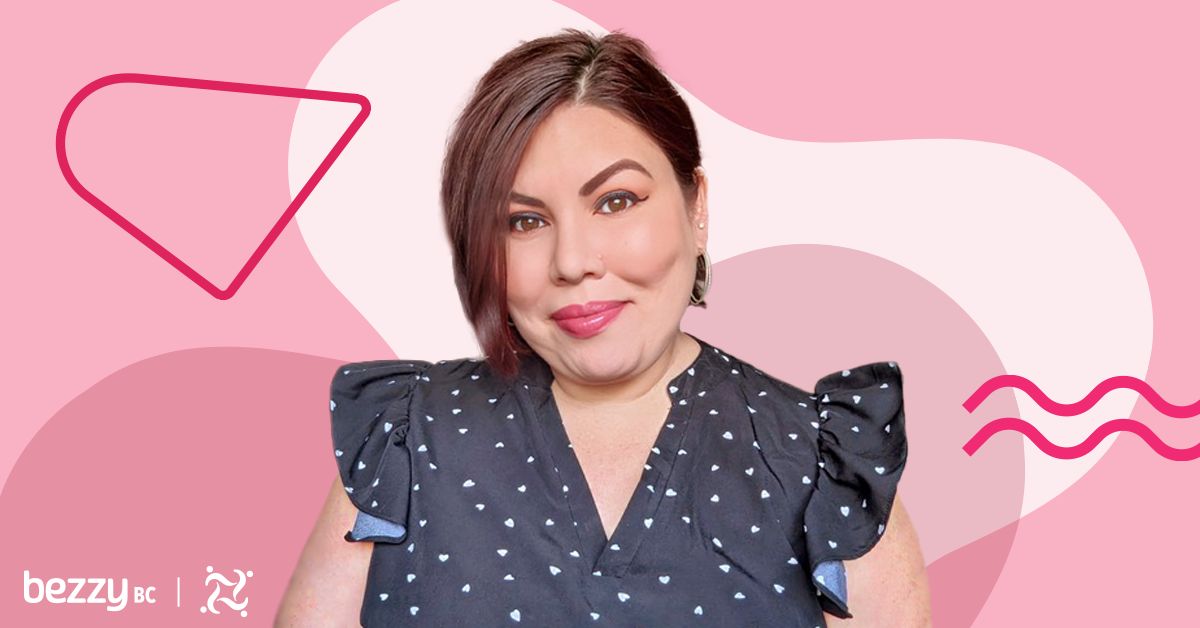How I Learned to Ask for Help after a Metastatic Breast Cancer Diagnosis
November 14, 2023
Content created for the Bezzy community and sponsored by our partners. Learn More

I always thought I had to be my own hero, but this experience taught me how beautiful it can be to let others in.
I just celebrated my 5-year cancer anniversary.
When I look back at who I was before I was diagnosed at age 37, I see a totally different person: a ferociously independent city dweller and single mom going through a nasty custody battle.
Even though I was in the midst of turmoil, I handled things on my own. I didn’t let anybody tell me what to do, and my life was “go, go, go.”
I live with other illnesses, too, including bipolar disorder. It’s made me hypervigilant and self-reliant.
Then, my cancer diagnosis opened my eyes as support just flooded in. My whole life changed when my community and family showed up for me. I didn’t have to be a single mom doing everything for myself. I could accept help.
That’s the biggest message I’d give to anyone going through this: See what’s being offered and take it because you don’t know how much it will do for you.


Dealing with misdiagnosis
Although it’s been 5 years since my diagnosis, it should have been 7 years. I got a routine pap smear at age 35 and mentioned that I felt a lump.
I was still breastfeeding, and there was no history of breast cancer in my family, so my doctor chalked it up to a clogged milk duct.
I felt almost ashamed thinking it was cancer. But looking back, I should have advocated for myself more forcefully.
Two years later, the lump reappeared bigger than before. I went in for a mammogram, and the medical staff did a biopsy the same day. I got a call later confirming it was cancer.
I knew it would have been treated more easily if we’d caught it years earlier. Instead, I was diagnosed with stage 4.
I was angry and totally freaked out. I was against the idea of chemotherapy, initially thinking I could cure the cancer with natural remedies like cannabis. But I had a 4-year-old daughter, and I couldn’t take a chance.
Instead, I started treatment and went into what I call “my depression season.” I realized I’d be on medication for the rest of my life, and that hit me hard.
Learning to accept support
As a community activist, I’ve always been fired up about supporting others by lining up the resources they need. Ironically, I didn’t want to deal with my own needs, especially not my own health.
When I started telling my friends and family, they were shocked. They were so used to me being the one standing up, and now it was my turn to sit down.
I honestly didn’t know what to expect, but all the people I’d supported started doing the same for me. I didn’t have family nearby, so my friends banded together. It was overwhelming to receive love and feel seen like that.
When they heard I’d fainted alone at home after chemo, my upset friends made me promise to get the support I needed.
So, I called my brother.
As a result, my sister-in-law quit her job and stayed with me for 2 months. Historically, we haven’t always gotten along well, but it was one of those things where the universe aligned for us.
She came through for me, helped with my daughter, cooked, and cleaned. She gave me the space I needed to be able to handle the medical side of things. My friends made sure I always had a ride to and from the hospital.
It was crazy how much everyone did to help.
Embracing new connections
In the beginning, I didn’t reach out to the breast cancer community. I was managing on my own with friends and family, and I thought that was good enough.
After 2 years of navigating treatment, I realized I needed a different kind of support. I began reaching out to other people with metastatic breast cancer through For the Breast of Us, an education, advocacy, and community organization for Women of Color affected by breast cancer.
As wonderful as all my other supporters had been, they can’t know what it’s like to experience breast cancer firsthand.
Those in the breast cancer community just get it. I wish I’d reached out earlier.
It gives me a sense of peace to see others living their lives as they go through the same thing as me. They’re the best cheerleaders.
Takeaway
I’ve always thought I had to be my own hero, but this experience has shown me how beautiful it can be to give up some independence and let others in.
It was hard and overwhelming, but I’m so thankful. Sometimes, you just need someone to come over, sit with you, bring some food, and chat. I see now how amazing that simple action can be.
This is When You See Us, a series in partnership with our friends at For the Breast of Us, highlighting the experiences of Women of Color in the breast cancer community. Together, we believe that hearing the stories of women who look like you and can relate to your experiences has the power to foster community, resiliency, and hope.
If you’re a Woman of Color living with breast cancer, you can join the conversation by becoming a Bezzy BC member, navigating to the For the Breast of Us group, and introducing yourself.
Medically reviewed on November 14, 2023


Like the story? React, bookmark, or share below:
Have thoughts or suggestions about this article? Email us at article-feedback@bezzy.com.